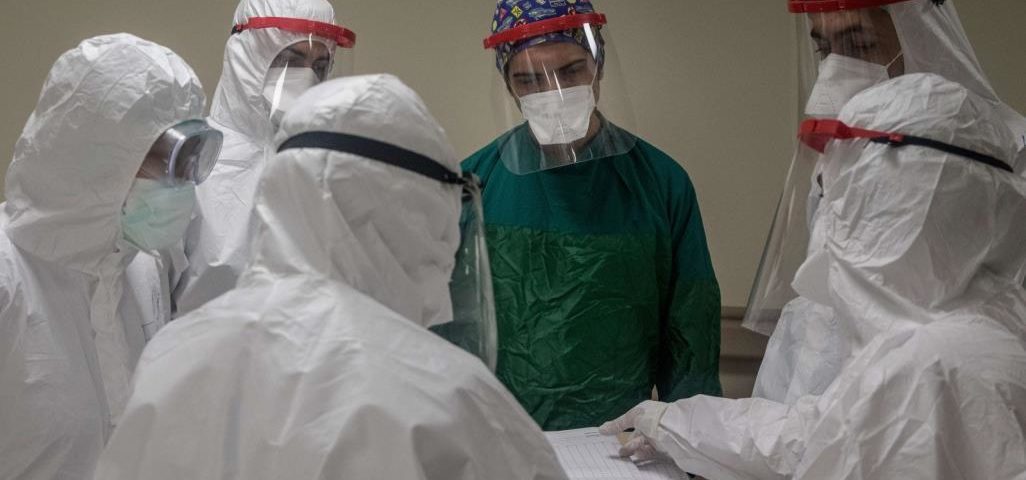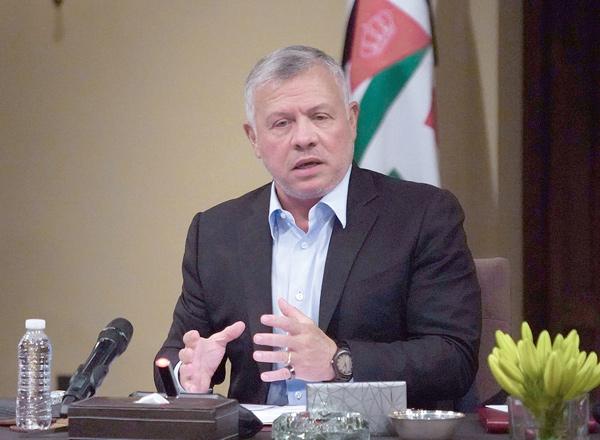Jordan after COVID-19: From Crisis Adjustment to Crisis Management

Oman records 1605 new coronavirus cases
June 22, 2020
Omanisation: Ministry of Transport to take regulatory measures in delivery profession
June 29, 2020When Jordan traced its first case of coronavirus to an individual who had traveled to Italy on March 2, the response was swift. March air raid sirens, which called for a full curfew and social distancing, the likes of which the nation had not witnessed since September 1971. The semi-rentier and resource-starved country’s early response also consisted of quarantining 5,000 visitors from abroad in 30 five star hotels, located mostly near the Dead Sea and paid for by the government. These initial measures—some of the strictest in the entire region—appear to have had the intended effect. The number of COVID-19 cases in Jordan since the first reported case has remained low; as of April 15, the total number of confirmed cases in the Kingdom stood at 407, with 7 deaths and 250 recoveries—though this number is certainly impacted by the limited testing to date. Jordan’s response appears to have been driven by necessity; an escalation of cases as seen in several other countries would be devastating, both in terms of human life and the consequences to the economy. Yet the impact of coronavirus as it spreads is such that Jordan’s expansive measures have placed it in a quandary: the continued internal and external protection of its people as the realities of Jordan’s large refugee population and economic challenges inform its continued response. As a resource-starved and semi-rentier country, Jordan is likely to face deep challenges later on even if the rate of infection is kept down.
Flattening the Curve
In a personal telephone interview with Prof. Faisal Odeh al-Rfouh, the former Minister of Social Development, of Culture, and of Labor and Health, on April 9, noted that inter-agency cooperation and public buy-in were contributing to the implementation of social-distancing measures. The former Minister stated that “Jordan is a law abiding society. Around 95 percent of the people obey the law and hence when the call for curfew was given, the people followed the directions—and this has helped in controlling the virus spread in an enormous way.” Nevertheless, within a short time, Jordanian officials decided that a complete curfew would worsen the situation, and allowed for some relaxation in terms of visiting convenience stores for basic necessities after March 23.
In coordination, the country employed its armed forces along with other security forces to deliver supplies such as food, water, oil, and other necessities to the various communities, especially Jordan’s refugee camps. The army has proven instrumental not only in controlling and checking the movement of the population during this crisis but also in offering services. Additionally, people were provided with free internet services and online classes were conducted. According to Minister al-Rfouh, cash distribution for the under-privileged classes was facilitated by the government, public sector employees are given full payment, and the private sector is urged to provide “100 percent salary to the employees working from home and at least 50 percent for those who are not working because of various constraints.”
The Minister suggested that these measures had paid off, pointing to the regions free of the virus as a clear indication of success. “Southern Jordan is totally virus free; known infections are only present in Amman, Irbid and Zarqa. This shows that by and large the situation is under control in the country.” That being said, Amman, Irbid, and Zarqa are the three most densely populated urban centers in Jordan; Amman is home to almost half of the country, and the three cities are home to nearly 83 percent of the country’s 1.6 million Syrian refugees.
Complexities in Jordanian Society
Jordan faces several challenges in mounting a response due to the particulars of the country’s demographics. Jordan has a significant proportion of refugee population relative to its size. Prof. al-Rfouh cited refugee statistics of 2.6 million [registered] Palestinian refugees, 1 million Iraqi refugees and 1.6 million Syrian refugees. Collating data from various sources such as United Nations Relief and Works Agency (UNRWA), Jordanian government sources,United Nations High Commissioner for Refugees (UNHCR), and independent sources it can be argued that the number refugees in Jordan are close to the number suggested by the Former Minister al-Rfouh and consists of around 2.1 million registered Palestinians refugees, 0.5 million Iraqis and 1.6 million Syrians; that is, Jordan has around 4.2 million refugees. When combined with the estimated number of foreign workers in Jordan, who are mostly from the region, this estimated figure of non-citizens in Jordan is over 5 million—potentially over half of Jordan’s total estimated 9.7 million population.
This results in acute population pressure on the limited national resources. For many of Jordan’s refugees, their unusual status mean that many are ineligible for usual foreign aid channels. The majority of Iraqi refugees are not registered as refugees and are instead referred to as “refuge seekers;” many Palestinians are formally “guests” in the country; and a similar line of argument is used for nearly half of the Syrian refugees, namely those who were already working in Jordan before the Syrian conflict began in 2011. Adding to the practical difficulties, in the Hashemite Kingdom, 83 percent of the refugees live outside the camps and are mingled with the nearby Jordanian communities. The large presence of refugees from various parts of the region has also given birth to many kinds of rival nationalism, and thus makes Jordan a complex and pluralistic society.
In his March 23 address to the nation, King Abdullah II hinted at these complexities when he remarked: “My brothers and sisters, my family, my people, and my source of fortitude each and every one of you is a soldier of this nation, each in your own post.” Notably, this address, while referring to Jordanians, also uses more open phrases like ‘brothers and sisters,’ ‘family’ and ‘my people’ to speak to his audience.
Moreover, reaching these communities is vital to Jordan’s overall strategy in the pandemic. In COVID-19 context, it is the unregistered, unrecognized refugees that mix with the community for whom reaching out to deliver supplies is rather difficult. For the camp dwellers, target area/target population method is helpful in delivering essentials. Furthermore, from a purely financial standpoint, Minister al-Rfouh pointed out that around 75-85 percent of the refugee donations are by the Jordanian government. This is partially corroborated by the 2013 released report by Ministry of Planning an International Cooperation on Syrian refugee funding. Therefore, managing its huge refugee population after the coronavirus crisis will be the challenge that the country will have to face.
Long-Term Economic Challenges May Be More Severe Than Public Health Ones
The structure of Jordan’s economy makes it especially vulnerable to the necessary curfew and quarantine measures the country is enacting. The service industry is the country’s most prominent sector, making up approximately two thirds of Jordan’s GDP. Moreover, the country is deeply linked to the global economy, importing around 90 percent of its food items and energy requirements.
Faulty and inadequate adjustment measures have further complicated the economic structure of the country. For instance, agriculture in Jordan, which makes up merely 5.6 percent of the GDP in 2018, consumes more than 50 percent of the total freshwater available in the country annually.
Due to the lockdown following the spread of COVID-19, it is the services industry, the largest sector of the economy, that will be hit globally in general and Jordan in particular. With further economic constraints, there is a possibility that greater austerity measures will have to be taken by the government. The state has already made efforts to reduce its welfare programs from the 2000s with the removal of certain subsidies on food, water, and oil. However, this move has not been met without protest; the cuts led to a series of bread riots in the country over a period of time. After the pandemic, it is likely that the economy of the country will be further affected. Jordan will likely have to drift away from its semi-rentierism. Such a process may lead to further protests and perhaps bread riots, as in earlier time, creating an additional challenge for the country.
However, Prof. al-Rfouh remarked that “no doubt the corona crisis will affect the Jordanian economy but so it will the global economy and thus Jordan is not an exception.” He further added that the “nature and character of war before and after corona will not be same and there will be massive shift in the international discourse.” He conceded that it will create a difficult time for Jordan, especially in terms of basic necessities such as food, water, and energy—all of which are in critical condition in the country. Yet the Minister opined that even though cereals are imported, Jordan is self-sufficient in vegetables, fruits and meat; and that means that a coping mechanism, if in place, will make things manageable from a food-security standpoint.
Jordan is also facing a potential loss of foreign aid as other countries tighten their own budgets. Though the percentage of foreign aid compared to the GDP has decreased from 40 percent to around 7 percent, foreign aid still plays a crucial role in the Jordanian economy. For instance, during the June 2018 protests in the country against income tax and increasing austerity measures, friendly Arab countries like Kuwait, Qatar, the UAE and Saudi Arabia provided some emergency aid to Jordan. Similarly, foreign agencies also provided some relaxations and donations which helped in tackling the situation. As per Minister al-Rfouh, Jordan will need the continuous flow of foreign aid to sustain its economy post-coronavirus as well. However, such reliance on aid is problematic in the long run, especially as donor countries also suffer during the likely inevitable global economic downturn. Jordan may thus have to contemplate a drastic change in its economic orientation before these funds dry up.
Jordan’s early response and implementation of several laws and containment policies can be justified given the many challenges facing the country even before the epidemic. Yet the current measures must be understood as merely a short-term palliative. The country will soon need to rethink its longer-term situation in the wake of the pandemic. For a country with such social, economic, and environmental stresses, the coronavirus could serve as a wake-up call, triggering the switch from its existing crisis adjustment policy to a robust crisis management and alleviation policy. Such changes can only be implemented through political will—and the risks either way are unavoidably substantial.





